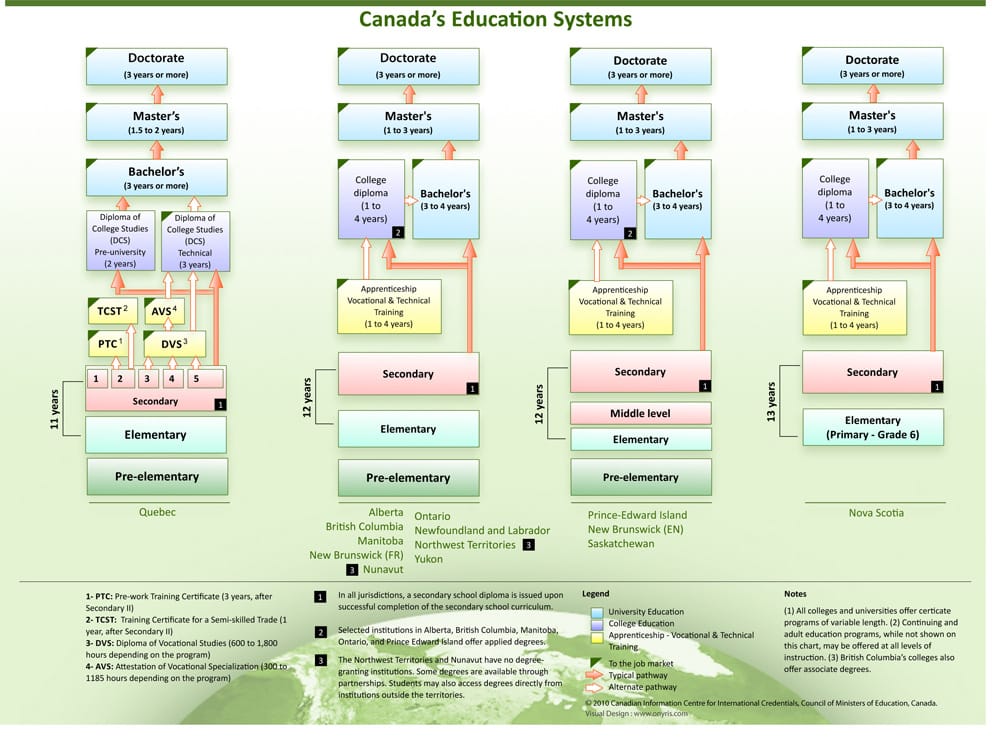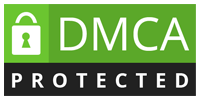Studying in Canada is an excellent option for those who are looking to spend some time abroad. To study in Canada, you will need to obtain a Canadian study permit, which serves as a Canadian student visa for the duration of your stay. You do not need a Canadian study permit if your course or program lasts six months or less.
The first step is finding an eligible school and enrolling there on their website. Once you have registered at the school of your choice, they will provide you with all of the information you’ll need about applying for your study permit.
Why study in Canada
Canada has an excellent education system that is recognized around the world. Its immigration policy makes it friendly towards immigrants, and its universities are some of the best in North America – many with reputations for quality research and teaching facilities.
Canada offers several different types of job-focused study programs, including coop options so students can gain work experience while studying alongside their classwork to develop valuable skills right away after they graduate from university or college. They also have postgraduate work permits available, allowing international students who complete a degree program at Canadian institutions to stay employed here until they find a permanent residency. From an immigration perspective, the message below from the Immigration Minister spells out the policy very clearly – Canada wants students to stay and become permanent residents.
What to study in Canada
Canada has a robust education system that consists of Public, Private and Technical Schools. It also includes Universities & Colleges, Community Colleges / Institutes, Career Schools, and Language schools at the secondary level.
Courses offered in Canada
- First Professional Degree
- Diploma
- Associate Degrees
- Applied Degrees
- Bachelor’s Degree
- Master’s Degree
- Doctorate
Education System in Canada

Where to study in Canada
The provinces of Ontario and Quebec are considered the most popular student-friendly destinations in Canada. These two regions together have more than 1,000 designated learning institutions.
You can choose from many cities when deciding where you want your undergraduate studies or postgraduate degree program. Popular cities include Toronto, London, Ottawa, Montreal, Winnipeg, Sudbury, Thunderbay, Saskatoon, Regina, Edmonton, Halifax, Windsor, Burnaby, Oshawa, Kingston, Guelph, Sault Ste Marie, Oakville, and Vancouver.
Study in Canada fees
The average tuition cost for a year of Canadian college or university is around CA$12,000. However, the cost of your education will vary depending on which program you choose. For example, a certificate course can range anywhere from CA$11,000-CA$13,000 per school year, while an undergraduate degree might be between CA$13,000 – CA$19,000 annually. Postgraduate degrees are usually around CA$14000 but can go up to CA$50000 each year. For example, the average cost of an MBA degree in Canada is between CA$30000 – CA$40000 for each year. The MBA program in Canada typically takes two years to complete.
Study in Canada low tuition fees
Public universities and colleges generally have lower fees compared to private colleges. Universities and colleges with the lowest fee include:
- Memorial University
- University of Quebec
- Dalhousie University
- Simon Fraser University
- University of Calgary
- University of Saskatchewan
- University of British Columbia
Study in Canada with scholarship
- Shastri Indo-Canadian Institute Scholarship
- Canadian Commonwealth Scholarship and Fellowship Plan
- Ontario Graduate Scholarship Program
- National Research Council of Canada (NRCC)
- Quebec Provincial Government Scholarship
- Ontario Trillium Scholarship
- Partnership Grants by Social Sciences and Humanities Research Council of Canada
- Banting Postdoctoral Fellowships
- Vanier Canada Graduate Scholarships (Vanier CGS)
- Lester B. Pearson International Scholarship Program at University of Toronto
- Karen McKellin International Leader of Tomorrow Award at University of British Columbia
- Donald A. Wehrung International Student Award
- University of Calgary International Entrance Scholarship
- FINCAD Women in Finance Scholarship
- Winnipeg President’s Scholarships for World Leaders
- York University International Student Scholarships
- Pierre Elliott Trudeau Foundation Doctoral Scholarships
- Waterloo International Master’s Award of Excellence
- International Undergraduate Student Bursary at University of Manitoba
- University of Ottawa President and Chancellor’s Scholarships
- Ontario Graduate Scholarship
- Carleton Prestige Scholarships
- Humber International Entrance Scholarships
- UBC Graduate Global Leadership Fellowships for Developing Country Students
- YorkU The International Student Emergency Bursary
- Quebec Merit Scholarship
Study in Canada visa requirements
There are two pathways to apply for a Canada study visa.
Student Direct Stream Application [SDS Route]
SDS Route is a fast-track application. IRCC processes most applications in 20 calendar days.
To apply under SDS, you must meet all of these requirements:
- Be a legal resident living in India, China, the Philippines, Pakistan, Vietnam, Morocco, Senegal, Brazil, Colombia, Peru, Antigua and Barbuda, Costa Rica, Trinidad and Tobago, Saint Vincent, and the Grenadines.
- Have a letter of acceptance from a Canadian designated learning institution
- Live outside of Canada when you apply for the study permit
- Have proof that you have paid your tuition for your first year of study in Canada
- Have a Guaranteed Investment Certificate (GIC) with a participating Canadian bank of CA$10,000
- Obtain a Certificat d’acceptation du Quebec (Quebec Acceptance Certificate, or CAQ) if you plan to study in Quebec
- Obtain a medical exam before submitting your application (if you are required to get one)
- Obtain a police certificate before submitting your application (if you are required to get one)
- Have your most recent school transcripts (secondary and post-secondary)
- Obtain a language test result of at least the following:
- A minimum of 6.0 in each skill on the IELTS (reading, writing, speaking, and listening)
- A TEF score equivalent to a Canadian Language Benchmark (CLB) score of a minimum of 7 in each skill (reading, writing, speaking and listening)
Non-Student Direct Stream [NON-SDS Route]
If you do not meet the requirements of SDS, then IRCC will process your study visa application via the NON-SDS route, which is the general application. Here you must prove that you have the financial resources to cover tuition and living expenses, as well as those of their family members.
Students may use the following information to prove financial resources:
- Guaranteed Investment Certificate (GIC) from a participating financial institution
- Proof of a student or educational loan from a financial institution
- Your bank statements from the past four months
- A bank draft in convertible currency
- Proof of payment of tuition (receipt) and accommodation fees
- A letter from the person or institution providing you with money
- Evidence of a scholarship or funding paid from within Canada
- Canadian bank account statements in the applicant’s name, if money has been transferred to Canada
Study in Canada IELTS requirements
English test is mandatory for international students in most cases.
Canada’s IELTS requirement for university students varies depending on the program and institution. The majority of universities/colleges require a minimum IELTS score of 5.5 for Undergraduate courses, 6.5 for Graduate programs and 7 bands for courses such as Engineering, Teaching/Education Studies.
Every college/university provides a minimum IELTS requirement in their respective course description.
Study in Canada without IELTS
If you don’t have an IELTS score, Canadian universities offer many alternatives. These include TOEFL, Duolingo English Test CanTEST, PTE and others. Additionally, some universities offer their in-house language courses like the Intensive English Language Program (IELP). You can also submit proof that you studied for four years or more in an English medium school to replace your ESL score.
Best universities and colleges in Canada for your area of interest
Study nursing in Canada
Top universities to study nursing in Canada include:
- University of Toronto
- University of Alberta
- McMaster University
- University of British Columbia
- McGill University
- University of Calgary
- Dalhousie University
- Western University
- Queen’s University
- University of Ottawa
- University of Victoria
- Memorial University
- University of New Brunswick (UNB)
- University of Saskatchewan
- Ryerson University
- York University
- University of Manitoba
- St. Francis Xavier University
- Laurentian University
- Nipissing University
Study fashion in Canada
Top institutions to study fashion in Canada include:
- Ryerson University School of Fashion
- George Brown college
- Lasalle College
- Academy of Design
- Humber College
- Richard Robinson Fashion Design Academy
- Kwantlen Polytechnic University
- Fanshawe College
- Olds College Fashion
- École Holt Couture; School of Sewing and Design
- Seneca College
- Sheridan College Fashion
- University of Alberta Fashion
- NSCAD University
- University of the Fraser Valley
- Toronto film school
Study mass communication in Canada
Top universities to study mass communication in Canada include:
- Carleton University
- Ryerson University
- University of British Columbia
- University of King’s College
- Concordia University
Study music production in Canada
- University of Toronto
- McGill University
- Queen’s University
- University of Montreal
- University of Calgary
- University of Alberta
- University of Waterloo
- McMaster University
- Western University
- University of Ontario Institute of Technology
Study French in Canada
Top universities to study french in Canada include:
- Wilfrid Laurier University
- University of Alberta
- Lakehead University
- Cape Breton University
- University of Lethbridge
- Carleton University
- University of New Brunswick
- The University of Winnipeg
- University of Regina
- Western University (Ontario)
- York University
- Trent University
Study and work in Canada
You can work up to 20 hours per week as a full-time student and full-time during semester breaks without restrictions.
Post Graduation Work Permit (PGWP)
The Post Graduation Work Permit (PGWP) program in Canada has undergone significant changes in 2024, which are essential for international students to understand, especially those planning to study and work in Canada. These updates impact the eligibility criteria and benefits associated with the PGWP.
One major change is the implementation of new eligibility criteria for students enrolling in programs under curriculum licensing agreements. Starting in September May 2024, international students who begin their study programs under these agreements will not be eligible for a PGWP upon graduation. This decision was made to address issues related to the oversight and capacity of private colleges offering programs licensed by public colleges.
In addition, the validity of the PGWP has been extended to up to three years, regardless of the duration of the student’s master’s program, applying to students completing postgraduate programs by February 15, 2024. This extension aims to facilitate a smoother transition for students into the Canadian workforce, enhancing their opportunities to gain valuable work experience and potentially become Canadian permanent residents.
For new international students starting their programs in January 2024 or May 2024, it’s crucial to be aware that time spent studying outside of Canada after December 31, 2023, will be deducted from the length of the PGWP.
These updates are significant for international students considering or already pursuing higher education in Canada, as they directly affect the post-graduation opportunities available to them. Students are encouraged to review these changes carefully and plan their education path in Canada accordingly to ensure eligibility for the PGWP and to make the most of their Canadian study and work experience.
Post Graduation Work Permit [PGWP] application
You must apply within 180 days of completing an eligible course and getting your documents.
Detailed documentation from the official site
Living cost in Canada (CAD)
| Milk (1 litre) | $2 to $3 |
| Eggs (1 dozen) | $3 to $4 |
| Potatoes (4.5kg) | $5 |
| Groceries for one person for one month | $250 to $350 |
| Litre of gas/petrol | $1.20 to $1.45 |
| Public Transit fare, one way trip | $2.50 to $3.50 |
| Restaurant Meal | $15 to $30 |
| Fast food meal | $5 to $10 |
| Cup of coffee | $2 |
| Pint of beer | $5 to $7 |
| Movie in theatre | $13 to $20 |
| Internet (one month, high speed) | $40 |
| Mobile (cell) package (per month) | $50 to $70 |
| Cable television (per month) | $50 to $70 |
| International postage stamp | $2.50 |
| Youth hoster (per night) | $25 to $35 |
| Rent per month (bachelor apartment, large city) | $800 to $1200 |
| Rent per month (shared accomodation, large city) | $500 to $700 |
| Rent per month (bachelor apartment, small city) | $500 to $700 |
| Rent per month (shared accomodation, small city) | $400 to $600 |



